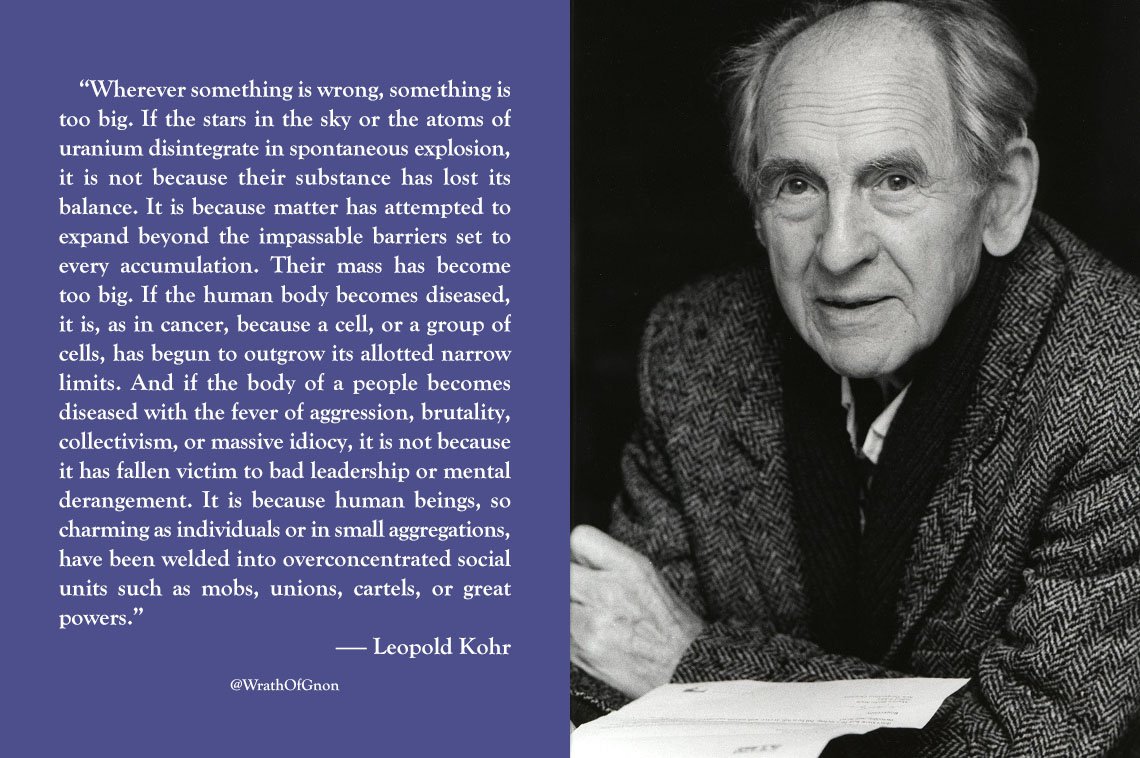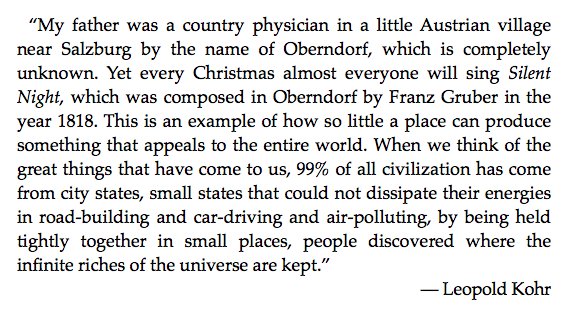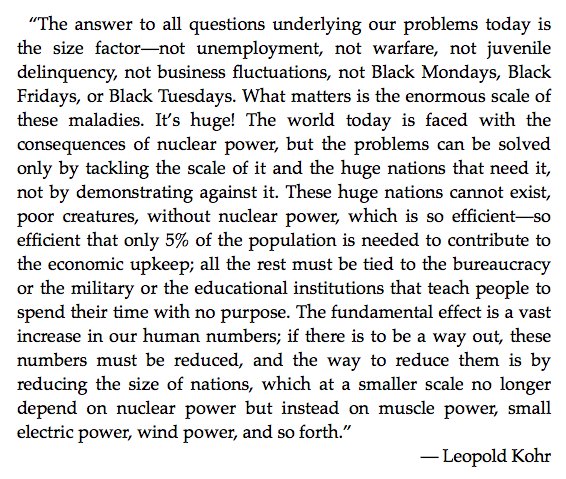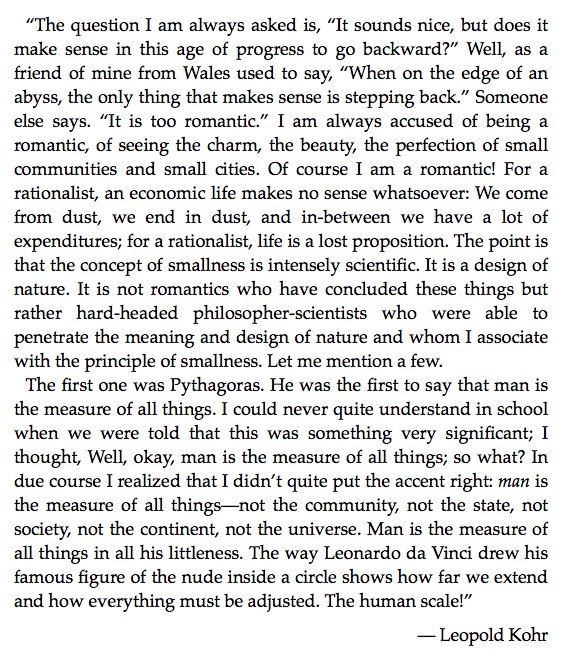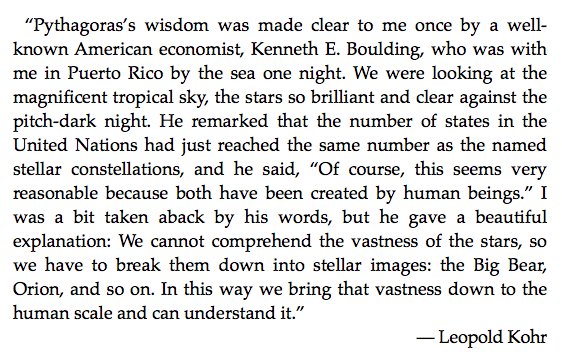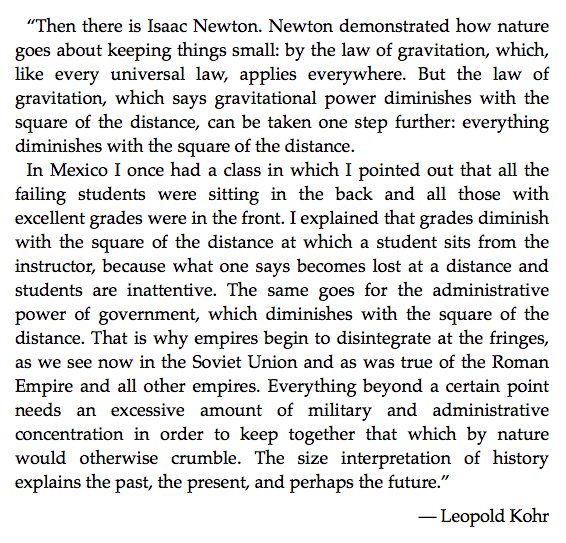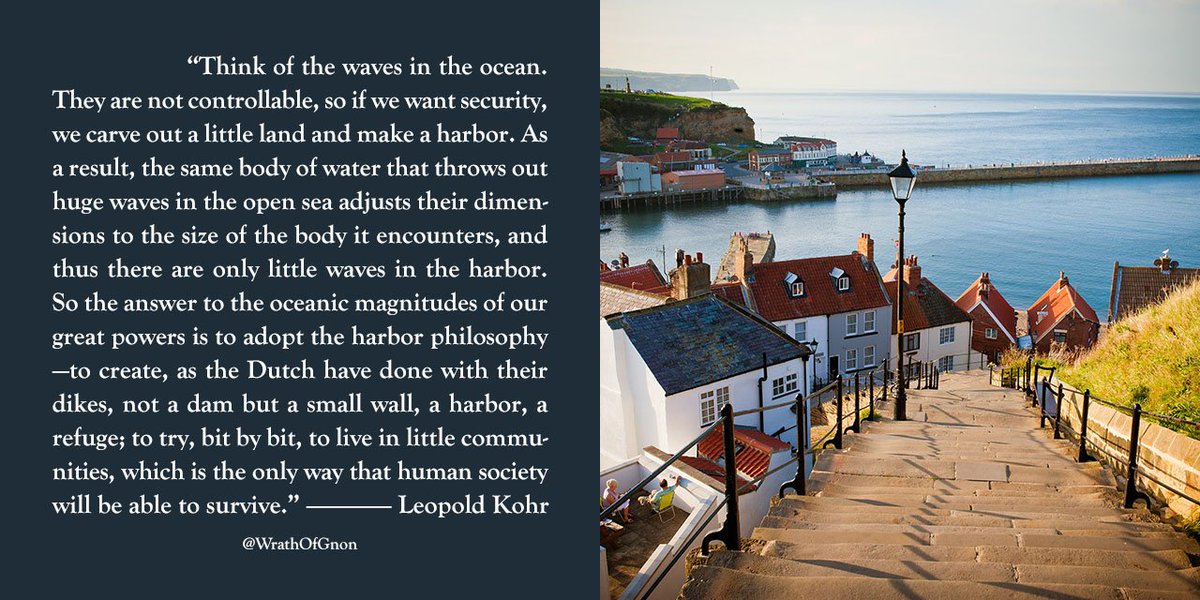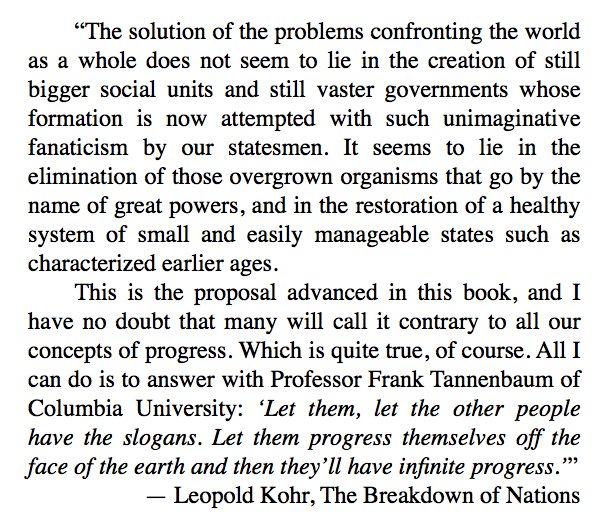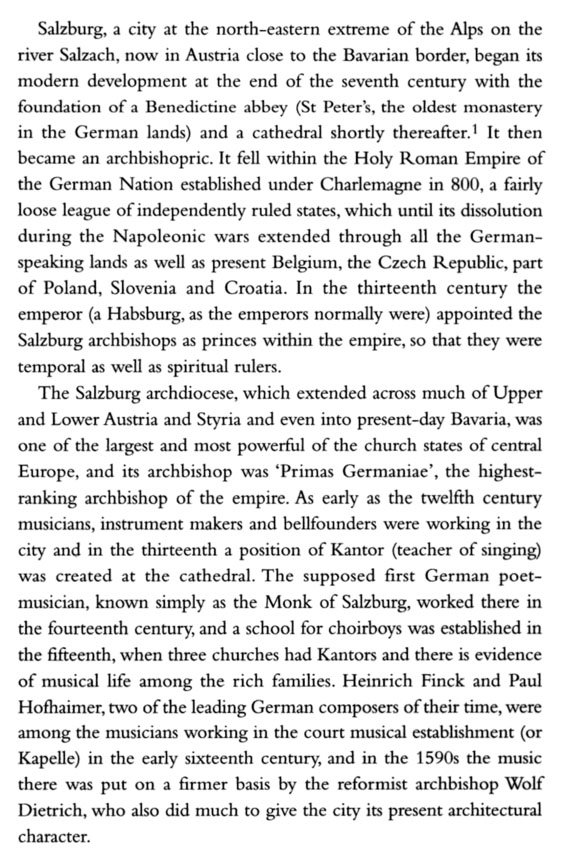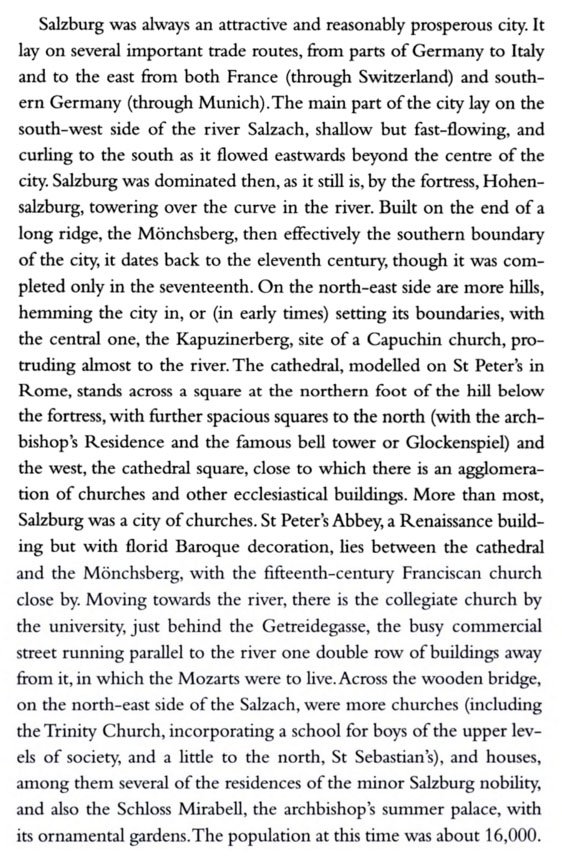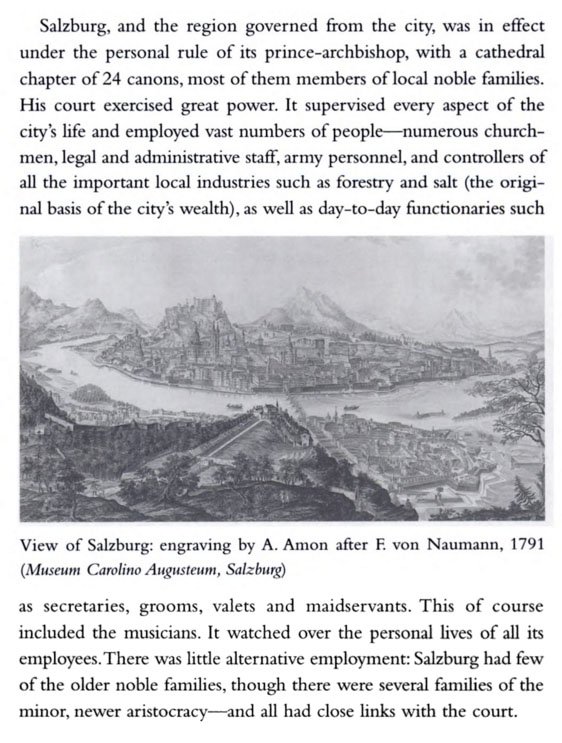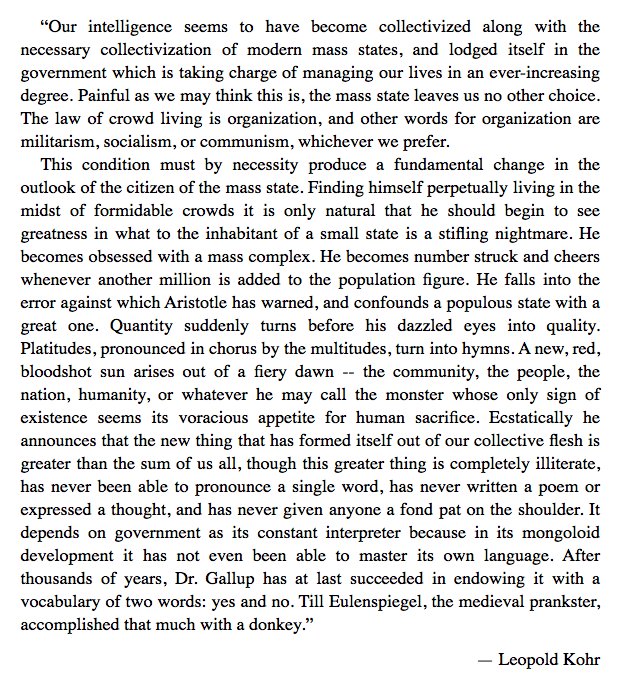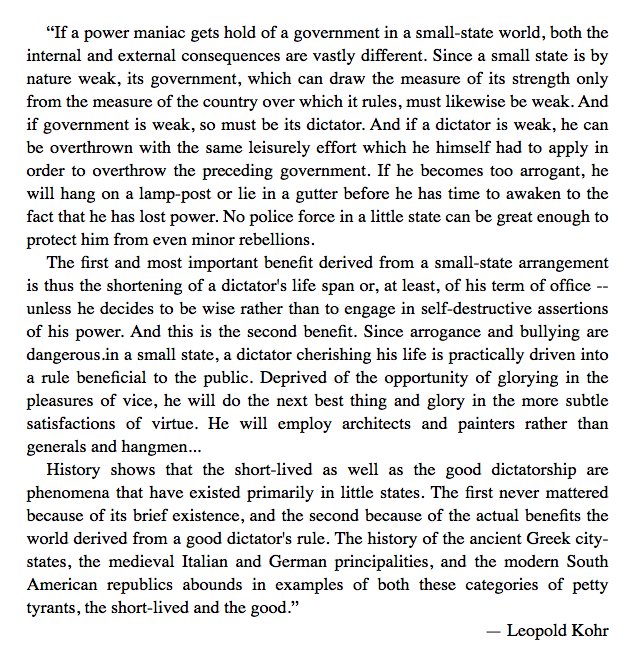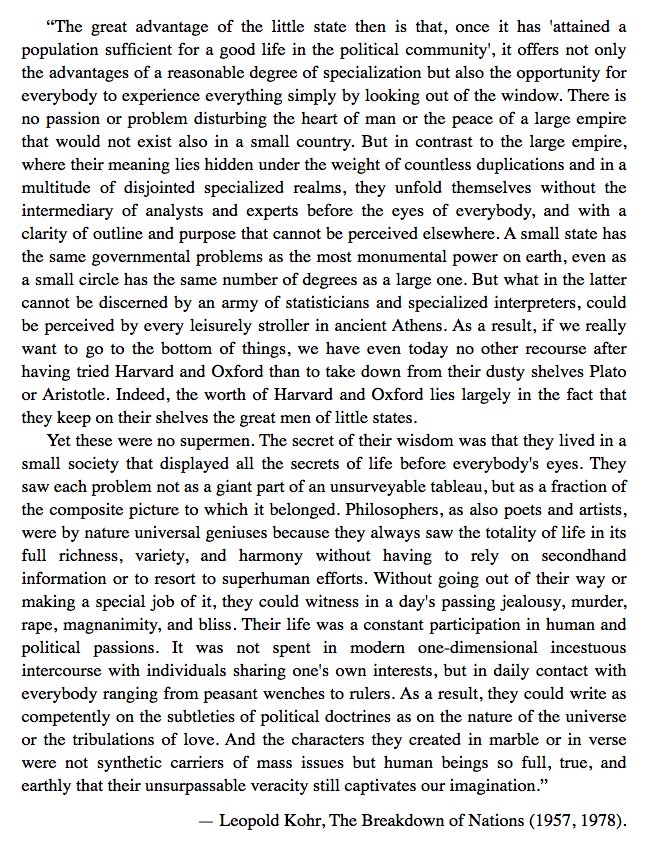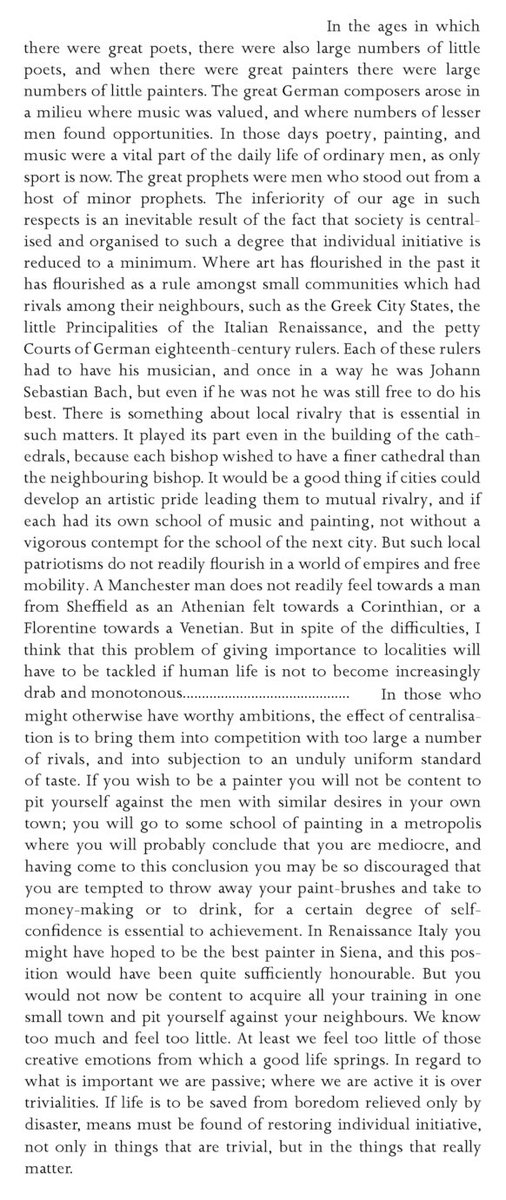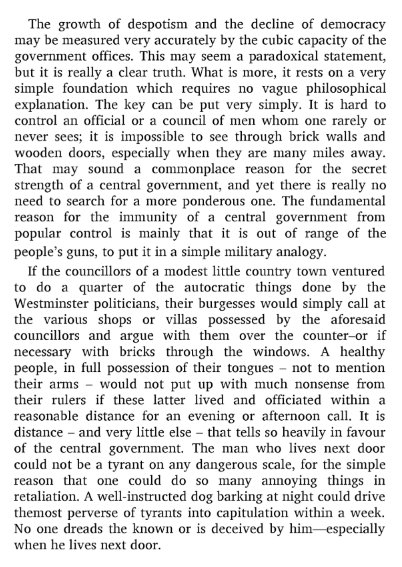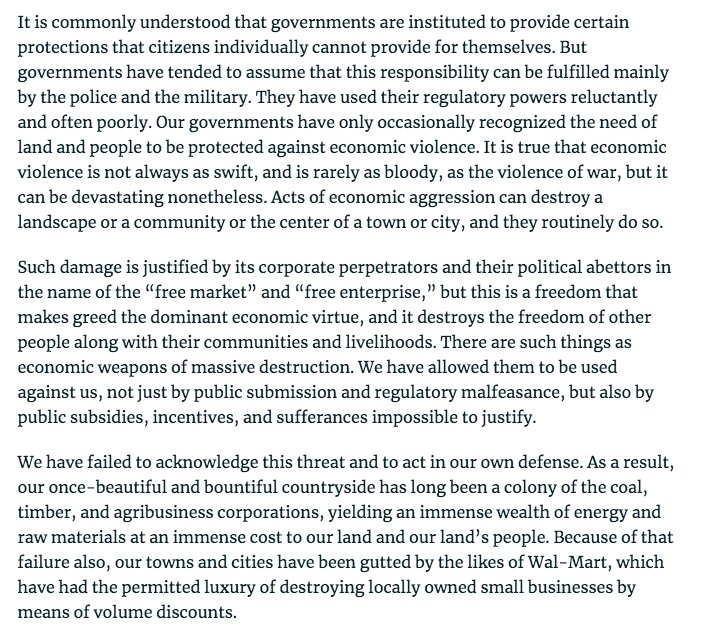Leopold Kohr goes on to give a beautiful example, that has been noted by many before him, of how smallness in human communities foster exponentially more creativity than mere size.
Theodore Dalrymple made the connection as well, many years later, pondering the spectacular creativity of the Italian city states of the late middle ages. https://twitter.com/wrathofgnon/status/625841486291021825
And speaking of country doctors and smallness, is this not a manifestation of the ideal of human life, the small country doctor, efficiently covering the needs of all his patients in a sustainable, charitable, humane manner? https://twitter.com/wrathofgnon/status/964683935459323904
Returning to Leopold Kohr: it is common wisdom, that when confronted with a seemingly impossible problem, to break it down into smaller pieces. Progressives however approach problem solving from the other direction: the solution must be bigger than the problem itself! Insanity.
Echoing the Progressive drolleries that I am subjected to myself, daily, Leopold Kohr had a good answer: "It is not romantics who have concluded these things but rather hard-headed philosopher-scientists who were able to penetrate the meaning and design of nature."
The great Lewis Mumford would surely have agreed, as would later Léon Krier, Kirkpatrick Sale, J.H. Kunstler etc. https://twitter.com/wrathofgnon/status/902894460660416517
Leopold Kohr goes on naming more scientists: after Pythagoras, da Vinci, Schrödinger etc. he mentions Kenneth E. Boulding (1910-1993), on the need for a human scale even in astronomy!
Building on astronomy and the human scale, Leopold continues with Isaac Newton, and gravity, space, and time.
The solution to so many of our problems, according to Leopold Kohr, is to learn to think small again. To adopt a harbor mentality.
From the introduction to The Breakdown of Nations by Leopold Kohr in 1957, citing Professor Frank Tannenbaum of Columbia University: ‘Let them, let the other people have the slogans. Let them progress themselves off the face of the earth and then they’ll have infinite progress.’”
Leopold Kohr, who came from the small town of Oberndof near once independent Salzburg, had a great shining example of the inherent value of human scaled communities. His description of the 18th c. Archbishopric is fantastic.
Stanley Sadie (in "Mozart: The Early Years 1756-1781" a great book) writes on the history of Salzburg, which from its very beginnings as a Benedictine monastery had a serious musical bent. By modern standards an absolutely astonishing ratio of population to cultural achievements.
Stanley Sadie continues: "Salzburg was always an attractive city... more than most, a city of churches." With an 18th c. population of 16 000 it had several churches, castles, palaces, choirs, theaters, orchestras, composers.
The attractive Salzburg was tightly controlled by its powerful rulers, a prince-bishop and 24 cathedral canons who were the main employers of the city. Stanley Sadie again:
Leopold Kohr with a nice take on the retarded state of Collective Man (from a chapter headed by a quote of Ortega y Gasset). Democracy: "After thousands of years, Dr. Gallup has at last succeeded in endowing it with a vocabulary of two words: yes and no."
On the limitation of evil in a small-state world: "If the dictator becomes too arrogant, he will hang on a lamp-post or lie in a gutter before he has time to awaken to the fact that he has lost power." — Leopold Kohr
“The great advantage of the little state then is that it offers not only the advantages of a reasonable degree of specialization but also the opportunity for everybody to experience everything simply by looking out of the window.”
— Leopold Kohr, The Breakdown of Nations, 1957
— Leopold Kohr, The Breakdown of Nations, 1957
Kohr's idea that the human scale and the local is vastly important to human happiness and self-realization was shared by Bertrand Russell (1872-1970). Here is a long but important extract from his "Authority and the Individual", 1949.
Kohr's idea of the human scale finds an ally in G.R.S. Taylor in 1919. On the importance of having your rulers (democratic or otherwise) so close at hand that you rub elbows with them on an almost daily basis. Human scaled is the only way Democracy has a chance to survive.
Wendell Berry in 2004 on the allure of big, and the need for scale. https://grist.org/article/berry/

 Read on Twitter
Read on Twitter